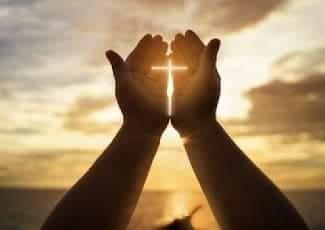26 August
Bible In 365 Days 
Jeremiah 49-50
Jeremiah 49
Against the children of Ammon Jeremiah raised a protest because their king was in possession of Gad. He declared that by the fierce judgment of war, they were to be dispossessed and driven forth. The message ends with a gleam of hope, in which the prophet foretold that again the children of Ammon would be made captive.
Concerning Edom, destruction is foretold, in spite of her wisdom. The reference to wisdom in Teman may be a satirical literary allusion to the fact that it was the birtbplace of Eliphaz, the counselor of Job. The destruction is described in figurative language, and the prophet declared that notwithstanding the arrogancy and security of the people, Jehovah would bring them down into the dust. The destruction of Edom is intended to be a warning to the whole earth.
Damascus is described in her decay, and in the destruction determined against her by the Lord of hosts. This reference to Damascus is brief, for it does not seem that in Jeremiah's time there was anything like intimate relationship of any sort between her and the chosen people. It is evident, however, that as his vision swept the horizon, Jeremiah saw that she also was within the circle of the divine government, and that judgment was determined against her.
Kedar and Hazor represent the Arab peoples, the former such as were nomadic, the latter those who dwelt in settled centers, and yet not in walled cities. Against both of these Nebuchadnezzar, the king of Babylon, was to be the instrument of judgment.
The prophecy against Elam is of a judgment, ending once more with a gleam of hope. Of Elam nothing can be said with any certainty. Again, it is evident in the far-reaching vision of Jeremiah she was seen as under divine displeasure, and consequently to be visited by divine judgment.
Jeremiah 50
The last of the prophecies concerning the nations has to do with Babylon. Throughout the whole of Jeremiah's prophetic utterances, she has been seen as the instrument of God's judgment. Finally, on account of her own sin and corruption, that judgment must inevitably fall upon her. That is the great burden of the message. It is perfectly evident throughout that the prophet had in mind the nations of Judah and Israel, and what he said concerning Babylon had its direct bearing on these as the people of God.
The prophecy falls into two parts, the first contained in chapter fifty foretelling Babylon's doom and Israel's deliverance; the second, in chapter fifty-one, indicating Israel's responsibility in view of this doom determined on Babylon. The paragraph (Jeremiah 50:1-20) contains the first movement of the first prophecy, in which, in general terms, the prophet announced the coming overthrow of Babylon, and foretold the repentant return of the children of Israel and Judah.
He then more definitely described the destruction of the city of Babylon itself. A confederacy of nations would come against her and destroy her, and that because she had rejoiced and been wanton in her dealing with the people of God. That people, though scattered and driven away, would be gathered and restored, while the iniquity of Israel and the sins of Judah would be pardoned.
The prophecy increases in power as it proceeds, as Jeremiah foretold the completeness of the overthrow determined against Babylon. The completeness he described as consisting in the utter humbling of her pride, and the absolute destruction of her power. He recognized that Babylon had been the instrument in the hand of Jehovah as he referred to her as "the hammer of the whole earth."
But the hammer is broken, and Babylon become a desolation. He described the destruction of her strong men as bullocks going to the slaughter. Escaping captives announce in Zion the vengeance of Jehovah. Her overthrow is to be according to all that she herself had done, and the prophet reveals the reason for the divine vengeance. "She hath been proud against Jehovah." The hammer had practically turned in rebellion against the hand that held it. Therefore the pride of Babylon was to be humbled.
All the things in which Babylon had put her trust, her multitudes, her princes, her wise men, her mighty men, her horses, her chariots, "the mingled people that are in the midst of her," her treasures, her waters, are seen as under the destroying sword of Jehovah, doomed to destruction as complete as that of Sodom and Gomorrah. The instrument in the hand of Jehovah is described as people from the north, but the prophet emphatically and with great clearness declared that the judgment is to be accomplished by the invincible Jehovah.
